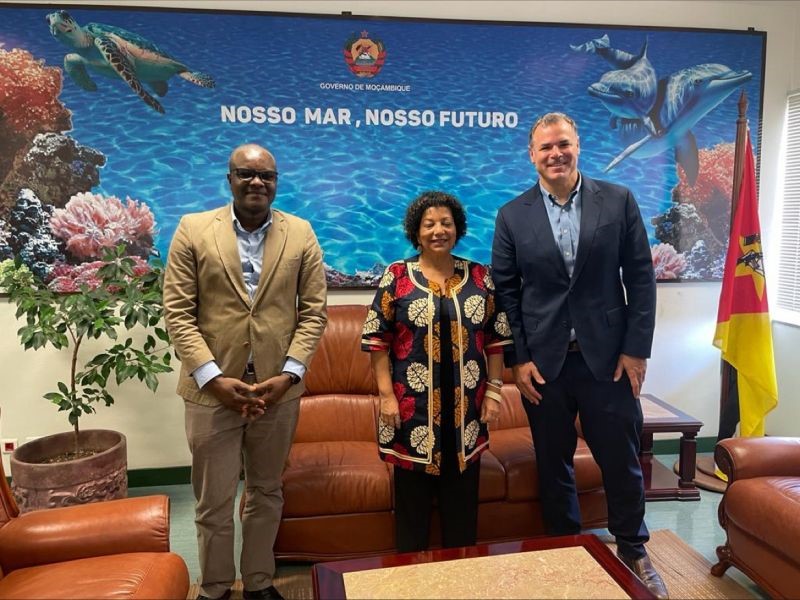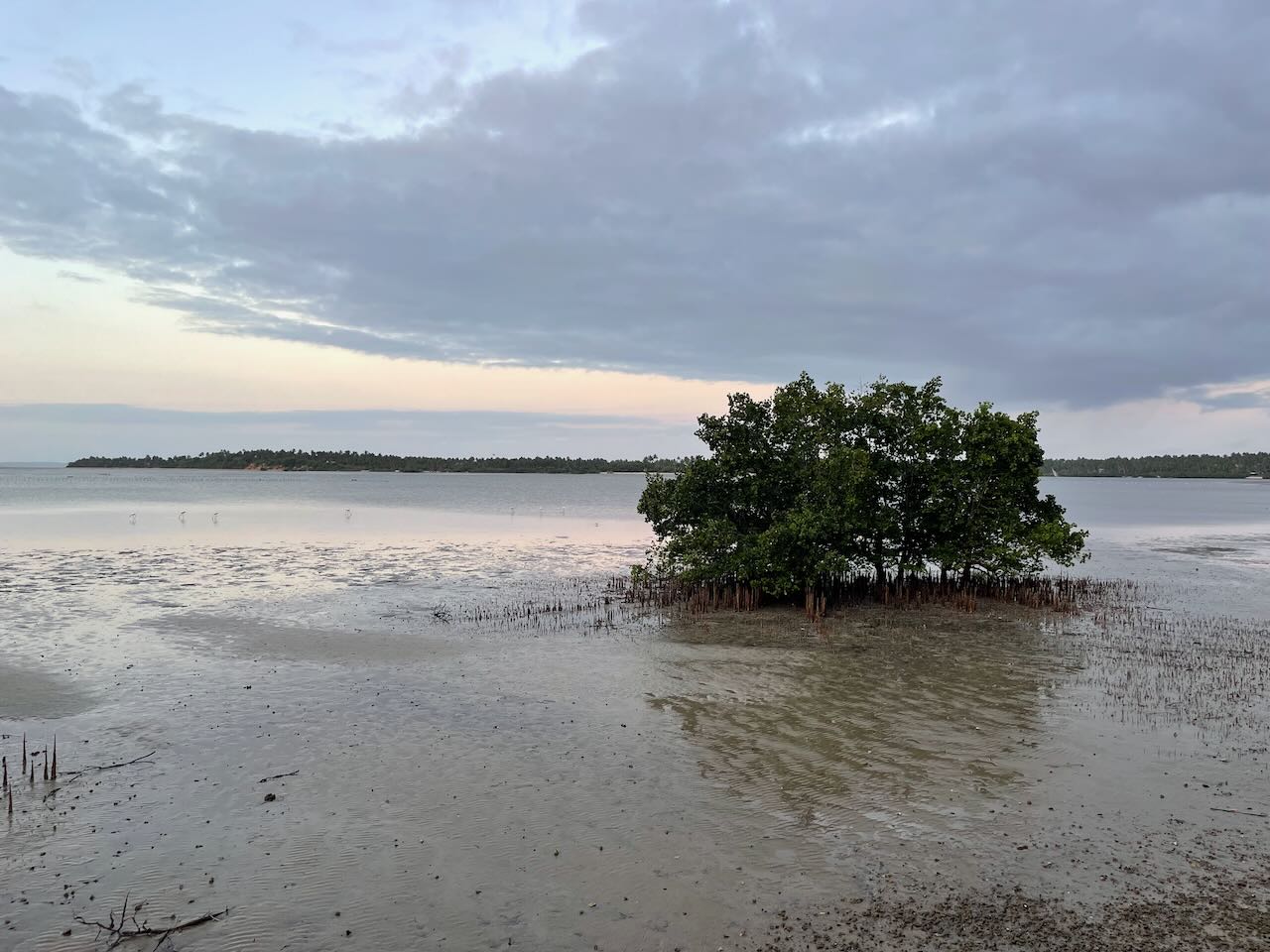This week, world leaders convene in Dubai with hopes for more aggressive climate commitments. Waiting in anticipation, I’m struck by the recent story I heard onstage from Rare’s Vice President of Mozambique, Atanasio Brito, at an event Rare held at Netflix in early November. One element of his inspiring story stuck with me: He said, despite Mozambique’s myriad challenges, “The fishers and government now believe that their efforts matter – and now believe it’s possible to change the situation in Mozambique.”
Watch Brito’s short story here.
A few weeks ago, I was able to see firsthand how this belief manifests along Mozambique’s coast. Starting in Maputo, I traveled to the Fequete community of Inhasorro, in Inhambane province, a few hundred miles north along the coast. In an era of climate change, the imperative of Rare’s work could not be clearer. There is an urgency to help coastal communities secure greater rights to manage and improve their resources, build capacity to improve fisheries management, and absorb financial investment in diversifying their livelihoods – all elements critical to Rare’s Fish Forever approach.

The reality of life on Mozambique’s coast is harsh. People live on a few dollars a day, and seagrass die-off and growing patterns of cyclones hitting the coast force climate change onto the minds of the coastal communities regularly. Further, despite the landmark national regulation that paved the way for community-based fisheries management, there are still multiple political hurdles and democratic challenges to overcome before the communities are truly empowered with the rights and resources to manage their fishing grounds. The high levels of poverty and historically centralized governance that challenge coastal fishing communities and their government, set against the backdrop of a storied recent history of war and current conflict, truly create an extra barrier to helping Mozambique’s coastal communities set up functional and legal fisheries management.
And yet, as Brito shared, the fishers and local and national governments now believe their efforts matter. Immediately upon landing in Mozambique, I met with Her Excellency, Dr. Lidia Cardoso, Minister of the Sea Inland Waters and Fisheries, who is helping lead efforts to devolve power to the local communities. She expressly asked Rare to “do more up and down the coast” to support all 150+ of Mozambique’s fishing communities in building more sustainable fisheries management. To make that request a reality, each community would need to build their respective management plans for their managed access areas with reserves and then submit these for approval to the national government, which can be a lengthy process.

On their part, the communities with whom we partner are very well organized. In Fequete, they have both delimited the marine area in addition to starting savings clubs, learning financial literacy, setting up microenterprises and alternative livelihoods, and building the broader governance structure of their marine areas. The savings clubs are helping women, especially, build home and financial safety nets.
And the biodiversity potential of these coastal fishing areas is incredible. The Fequete community – so reliant on their fisheries resources and so threatened by climate change – is right across from Bazaruto National Park and even closer to Santa Catalina Island, which has unbelievable underwater habitat and fish populations. African Parks co-manages this marine protected area with the government, and it’s an invaluable testament to the potential impact of protecting Mozambique’s reefs and other coastal habitats. Further, initial blue carbon feasibility assessments show great promise for the carbon value stored in the robust mangrove resources not only in Inhambane but all along the Mozambique Coast.

We must keep our coastal communities at the forefront of our minds and intentions when considering the global commitments being struck and debated at COP28. As Brito shared, the communities and governments who represent them believe or are starting to believe that their efforts matter. As a global community, we must secure ever-greater resources and commitments to unlock their potential to take charge of their resources and their futures.